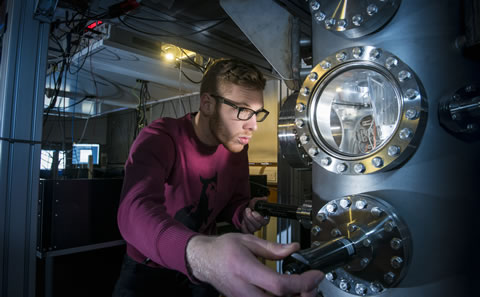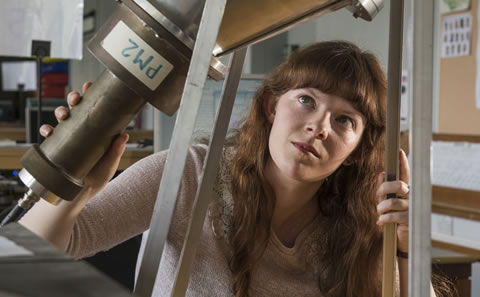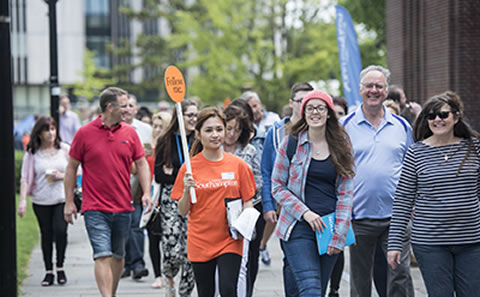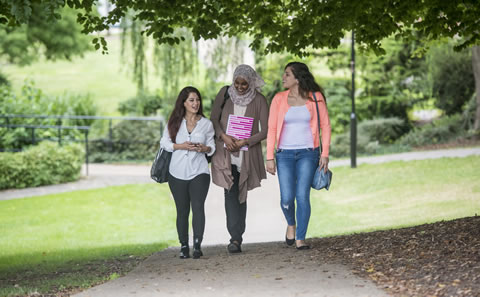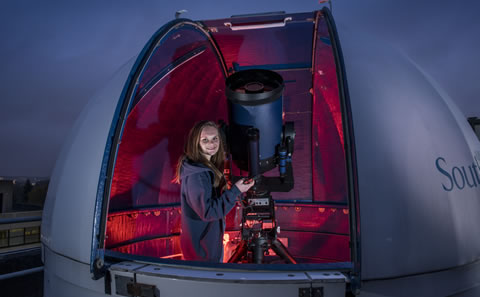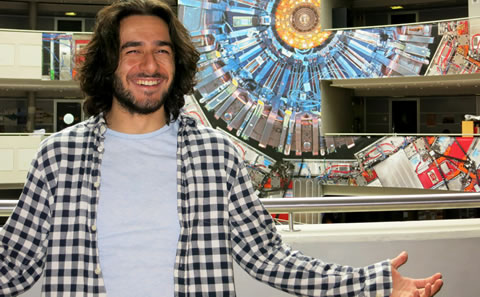Scientists studying data from a âlostâ satellite mission have discovered vital information about superheated gases in a galaxy cluster 240 million light years from Earth. The Hitomi X-ray satellite observed an unprecedented spectrum during an ill-fated 38 days in space, allowing scientists to analyse the composition of distant gases and gain a deeper understanding of the stellar explosions that created them.
The mission, which came to an abrupt end because of problems with its altitude control system, has given astronomers an important insight into the Perseus galaxy cluster â a collection of thousands of galaxies orbiting within a thin hot gas, all bound together by gravity.
In a paper published online this week in the journal Nature, researchers show that the proportions of elements found in the cluster are nearly identical to what astronomers see in our Sun.
Dr Poshak Gandhi, an Associate Professor from the University of Southamptonâs Department of Physics and Astronomy, was among a 200-strong team of scientists involved in the international collaboration. He says: âDespite the failure of the mission soon after launch, the precious few observations that we did obtain have proven to be transformational for our understanding of superheated cosmic plasmas. Such plasmas outweigh known galaxies in clusters 10 to one, so are an essential component to our complete understanding of the Universe.
âThe present study is just a glimpse of how much more remains to be learnt. And this is â almost â within our grasp. NASA and the Japan Aerospace Exploration Agency (JAXA) are planning to launch a follow-up X-ray observatory, together with the European Space Agency. I sincerely hope that the UK will be able to participate in this mission and to reap the rewards of opening up new frontiers in X-ray astronomy.â?
Gas in the Perseus cluster averages 90 million degrees Fahrenheit and is the source of the clusterâs X-ray emission. Using Hitomiâs high-resolution Soft X-ray Spectrometer (SXS) instrument, researchers observed the cluster between 25 February and 6 March, 2016, acquiring a total exposure of nearly 3.4 days.
One group of observed elements was closely tied to a particular class of stellar explosion, called Type Ia supernovas. These blasts are thought to be responsible for producing metals collectively known as âiron-peakâ elements.
The study suggests that the same combination of Type Ia supernovas producing iron-peak elements in our solar system also produced these metals in the clusterâs gas. This means both the solar system and the Perseus cluster experienced broadly similar chemical evolution, suggesting that the processes forming stars â and the systems that became Type Ia supernovas â were comparable in both locations.
